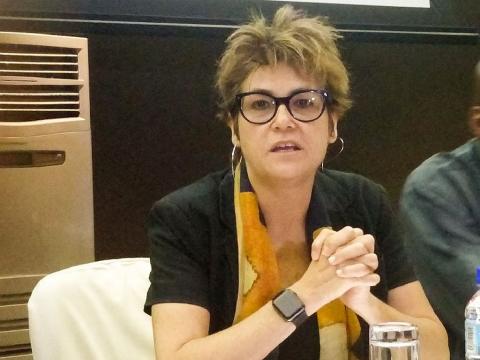By Kemo Cham
The World Bank has announced a new Country Partnership Framework for Sierra Leone.
The charter, which will last for the period 2021-2026, prioritizes investments in human capital, job creation, economic diversification and building a resilient health system.
The Bank, in a statement issued on Friday, June 5, said the framework is aligned with the priorities of the government as contained in its Medium-Term National Development Plan.
Specifically, the three areas captured are building human capital and social inclusion, which entails improving the quality of education, enhancing access to quality reproductive, maternal and child health services and early warning disease surveillance systems; and scaling up social safety-nets. The document also aims to boost competitiveness and economic diversification, through support for the expansion of access to an affordable energy and sustainable energy mix through developing a least-cost sector expansion plan with a focus on renewables. It will also promote the use of digital technologies and greater competitiveness of Small and Medium Enterprises in the agribusiness, fisheries and tourism sectors.
The third area of interest in the framework is strengthening of accountability and macro-fiscal stability. This is intended to be achieved by strengthening revenue mobilization and the efficiency of public spending, improving the delivery of essential services, promoting inclusive financial innovations, and enhancing the regulatory environment in the mining and fisheries sectors.
The announcement comes as Sierra Leone battles the global Covid-19 pandemic which has impacted the country’s economic growth.
According to the Bank, prior to the COVID-19 crisis, Sierra Leone’s economy grew by 5.1 percent in 2019, driven mainly by robust activities in agriculture and services. It notes that thanks to the effects of the pandemic, the country’s economy is estimated to contract by between 2.3 and 3.1 percent in 2020, with growth expected to be between 1.4 and 2.0 percentage points lower than forecast for the medium term.
“Within its fragile context, the country was already facing a human capital crisis with the lowest life expectancy (51 years) and high maternal and child mortality,” the Bank noted in its statement shared with Politico, noting that a key challenge for the government is to diversify the economy to raise real income per capita growth above the population growth of 2.1 percent in order to ensure that the gains in reducing poverty and inequality are sustained.
Gayle Martin, World Bank Country Manager for Sierra Leone, said stressed the significance of the new framework.
“The new strategy is about people and jobs, and how to support Sierra Leone in advancing economic recovery and poverty reduction, which is critical in the face of the human and economic impact of the global COVID-19 pandemic,” she said in the statement.
Also commenting in the statement is a representative of the International Finance Corporation (IFC), which is the private sector development arm of the Bank.
“IFC focuses on promoting reforms that boost competitiveness, spur more inclusive growth and create better quality jobs,” said Babacar Faye, IFC Resident Representative for Sierra Leone.
Mr Faye added: “Supporting the development of a resilient and competitive private sector-led economy through our integrated advisory and investment engagement will also help the country in its effort to diversify the economy.”
According to the World Bank statement, the IFC’s strategic priorities in Sierra Leone will notably cover three critical focus areas: Agribusiness, Energy, and Mining, noting that its Creating Market Strategy will continue to support innovative business developments for transformational projects, notably in infrastructure.
Copyright © 2020 Politico Online








